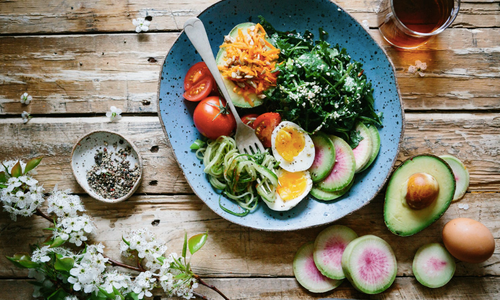An excerpt from the international best selling book “Building Healthy Humans”
Written by Dr. Pia Martin

Pia Martin
An excerpt from the international best selling book “Building Healthy Humans”
Written by Dr. Pia Martin

Photo by Brooke Lark on Unsplash
Our bodies are amazing! The body can convert the foods we eat into the basic building blocks we need for us to grow, repair, digest, think, and most importantly provide us with energy. That being said some foods are more bioavailable (take less energy and resources to breakdown into useable form) than others.
Bioavailable foods are those whole foods that are found in nature.
Imagine the steps that the body must take to go through to convert a food or substance with a lot of chemicals, or a ton of preservatives with names that you cannot pronounce into energy. Also imagine how much extra work the Liver will have to do to eliminate those toxins from these so-called foods! These foods have little or no nutritional value, yet they require a ton of energy.
Kinda makes sense to eat foods in the right combination that provide us the highest nutritional value and require the least amount of energy.
“Let Food be Thy Medicine and Medicine be thy Food”
- Hippocrates
The Human body is made up of approximately 50% Water, 30% Fat, 15% Protein, 3.5% Minerals and 1.5% Carbs. These numbers differ based on gender, race etc. however this gives you a clearer picture of what you might decide to eat if you wanted to provide the basic building blocks to build a healthy human, raise a healthy human or be a healthy human.
Water:
Water is the most abundant building block and it is important to get enough of it for your body to function efficiently. Staying hydrated is especially important if you are pregnant. Water is needed to form the amniotic fluid and flush toxins that are harmful out of the body to protect you and your baby.
Note: If you are drinking a lot of water and find yourself peeing a lot, consider adding a little Celtic sea salt to your food. It helps to keep the water in the body by balancing electrolytes. If that does no help please have your blood glucose checked.
Fats:
Since our bodies and brains need fat, a low fat diet is a bad idea especially when you are pregnant and have the desire to have a healthy baby.
Eating the right kinds of fats, like avocado, coconut, olive oil, fish, nuts, and seeds etc. does not make you fat! Good fats do not cause weight gain. Good fats make you feel more satiated and curb sugar cravings.
Good fats are needed to make cholesterol, which is the central building block for cell walls, baby’s brain growth and is a precursor for hormones. Good fats also regulate the inflammatory response and help you keep your blood sugar stable.
Protein:
Protein is used to make the structural components of our bodies. These are things like tendons, cartilage, muscles, internal organs, skin, hair and bones. Not all proteins are considered equal. Some are easier to digest than others and some can cause an allergy or sensitivity reaction. (Think Soy, Dairy or Gluten.)
Protein digestion and absorption requires good stomach acid. If you have low stomach acid and you have problems with digestion contact your healthcare practitioner as you might need to supplement with HCL.
Minerals:
Much of the body is made up of the following key minerals. They are calcium, phosphorous, and potassium. These minerals are essential for good bone health.
The rest of the body is made up of magnesium, chlorine, iodine, iron, sodium, and sulfur. There are also trace amounts of cobalt, chromium, copper, manganese, selenium, vanadium, zinc and others. Eating lots of dark green leaves and veggies is where you can ensure you will have a good supply of minerals. Having said that, most pregnant moms will need to supplement to accommodate the needs of her growing baby.
In order to absorb calcium your need good stomach acid and in order to have good stomach acid you need calcium. As we discussed earlier, if you are having issues digesting protein then you know that you are not absorbing calcium. It is possible that you might need to supplement with vitamin D. If vitamin D is low, then it can have an effect on your calcium levels. Have your vitamin D levels checked and if low get outside for 20 minutes a day and supplement. Optimal levels of Vitamin D are (40-80mg/ml). If your levels remain low you will need to dig a little deeper to see why you are not converting and absorbing Vitamin D.
Carbohydrates:
Your body needs carbs for energy, however you should aim to get most of your carbs from colorful vegetables, legumes, low glycemic fruits, and seeds like quinoa. Grains like Basmati rice; buckwheat; Amaranth and Farro are also good choices as most people tolerate them well.
Let’s just say that although Sugar is a carb it is not a good carb and causes major endocrine disruption. I know you know, so enough said.
Final Thoughts:
As you prepare your meals, take a look at your plate. Use the simple visual to make sure you are getting the nutrients you need. Does it have loads of greens, lean protein, good fats, and lots of colorful veggies for fiber? If it does you know you are doing a fantastic job for yourself and your family.
For more https://www.drpia.com/